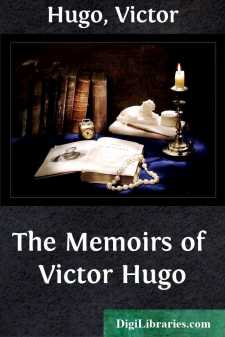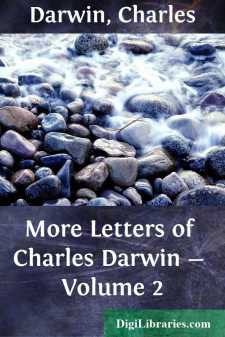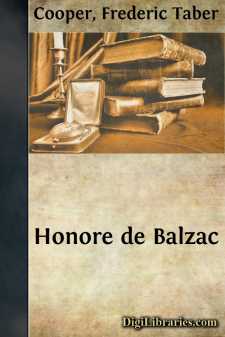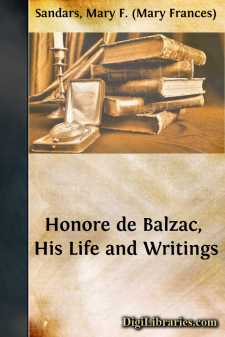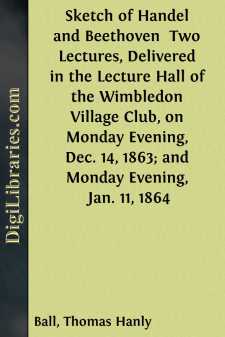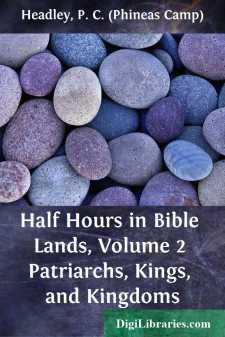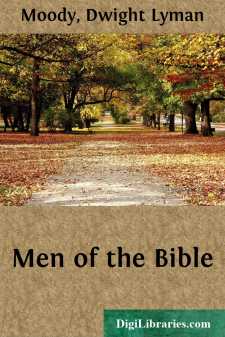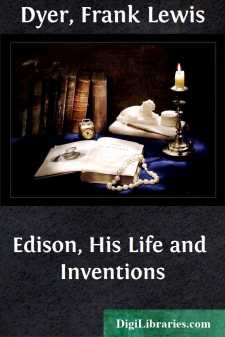Biography & Autobiography
- Adventurers & Explorers 15
- Artists, Architects, Photographers 16
- Business 2
- Composers & Musicians 14
- Criminals & Outlaws 5
- Editors, Journalists, Publishers 6
- Educators 1
- Entertainment & Performing Arts 3
- General 73
- Health, Exercise & Fitness 1
- Historians 3
- Historical 83
- Law Enforcement 1
- Lawyers & Judges 3
- Literary 147
- Medical 7
- Military 48
- Naturalists, Gardeners, Environmentalists 8
- Personal Memoirs & Diaries 226
- Philosophers 3
- Political 9
- Presidents & Heads of State 38
- Religious 38
- Rich & Famous 27
- Scientists 13
- Women 31
Biography & Autobiography Books
Sort by:
by:
Victor Hugo
PREFACE. This volume of memoirs has a double character—historical and intimate. The life of a period, the XIX Century, is bound up in the life of a man, VICTOR HUGO. As we follow the events set forth we get the impression they made upon the mind of the extraordinary man who recounts them; and of all the personages he brings before us he himself is assuredly not the least interesting. In portraits...
more...
by:
Charles Darwin
LETTER 378. J.D. HOOKER TO CHARLES DARWIN. Kew, January 20th, 1867. Prof. Miquel, of Utrecht, begs me to ask you for your carte, and offers his in return. I grieve to bother you on such a subject. I am sick and tired of this carte correspondence. I cannot conceive what Humboldt's Pyrenean violet is: no such is mentioned in Webb, and no alpine one at all. I am sorry I forgot to mention the stronger...
more...
I This story is derived from as human a document as ever existed; and, because of its uncommon nature, perhaps no one thing contributes so much to its value as its authenticity. It is an autobiography, and more: in part it is a biography; for, in telling the story of my life, I must relate the history of another self—a self which was dominant from my twenty-fourth to my twenty-sixth year. During that...
more...
Chapter 1.The Treatise on the Human Will. At Balzac's funeral, the glorious yet bitter seal upon his destiny, Victor Hugo delivered a magnificent address, and in his capacity as poet and seer proclaimed with assurance the judgment of posterity: "His life has been brief yet full, and richer in works than in days. "Alas! This powerful and indefatigable worker, this philosopher, this thinker,...
more...
PREFACE Books about Balzac would fill a fair-sized library. Criticisms on his novels abound, and his contemporaries have provided us with several amusing volumes dealing in a humorous spirit with his eccentricities, and conveying the impression that the author of "La Cousine Bette" and "Le Pere Goriot" was nothing more than an amiable buffoon. Nevertheless, by some strange anomaly,...
more...
My Dear Mr. Beaumont, Seneca has well said, "The three main points in the question of benefits, are, first, a judicious choice in the object; secondly, in the matter of our benevolence; and thirdly, in the manner of expressing it." Of the first, it would not be becoming in me to speak; of the second, you are the rightful judge; of the third, I beg leave thus publicly to state, that not only in...
more...
Job and His Three Friends. THE BIBLE AND THE HOLY LAND. PATRIARCHS, KINGS, AND KINGDOMS. SCENES IN THE LIVES OF THE PATRIARCHS. The patriarchs might be called family kings--the divinely appointedrulers of households. They were the earliest sovereigns under God ofwhich we have any account. Their authority was gradually extended by theunion of households, whose retinue of servants was often large,...
more...
ABRAHAM’S FOUR SURRENDERS A great many people are afraid of the will of God, and yet I believe that one of the sweetest lessons that we can learn in the school of Christ is the surrender of our wills to God, letting Him plan for us and rule our lives. If I know my own mind, if an angel should come from the throne of God and tell me that I could have my will done the rest of my days on earth, and that...
more...
by:
Frank Lewis Dyer
CHAPTER I THE AGE OF ELECTRICITY THE year 1847 marked a period of great territorial acquisition by the American people, with incalculable additions to their actual and potential wealth. By the rational compromise with England in the dispute over the Oregon region, President Polk had secured during 1846, for undisturbed settlement, three hundred thousand square miles of forest, fertile land, and...
more...
Captain Cook—His Life, Voyages, and Discoveries. Early Training. Among all those Englishmen who, from a humble origin, have risen to an honourable position, Captain James Cook is especially worthy of record. His parents were of the peasant class—his father having commenced life as a farm-labourer, and his mother being a cottager’s daughter. Probably, however, they were both superior to others of...
more...


